Can Meghan be royal and right for women?
Will the Windsors cope with a feminist in the fold, or merely co-opt her?
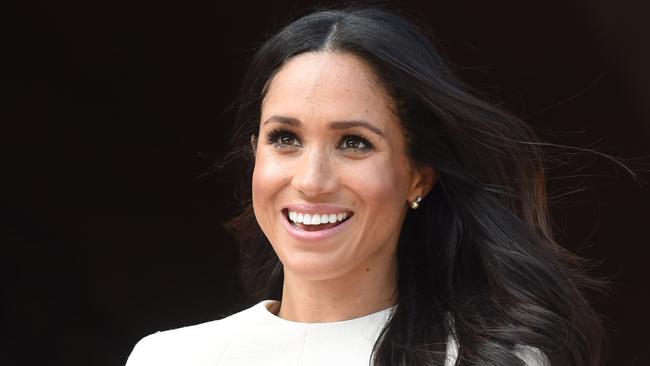
Once there was a little girl who wrote to Procter & Gamble, makers of detergent. Why, she wanted to know, do you only have wives in your commercials, doing the washing up? Why can’t you show everyone in the family helping with the dishes?
Chastened, the company agreed to change its ads. End of story? No, because that little girl, who was 11 years old at the time, grew up to be Meghan Markle.
She is married now — oh, you heard? — and what were the chances that it would be into one of the oldest patriarchies on the planet?
The British royal family. Sexist, classist, a little bit — are we allowed to say it? — racist.
Markle was hailed on the day of her wedding to Prince Harry — he’s sixth in line to the throne, although dropping every time his sister-in-law Kate has a baby — as a force for change. She was 37 years old and already a divorcee. She was older than her man, and bi-racial.
READ MORE: Prince Harry makes a stand over media coverage of Meghan | Meghan’s secret visit to murder site | Nikki Gemmell on the audacity of Meghan Markle | Feminism is about fairness: Meghan’s powerful speeches
But of course, appearances are one thing. Was she really going to make a difference to the lives of women and girls? There has certainly been a concerted effort to push Meghan’s feminist credentials. Look around the internet and you’ll see that she once stepped out wearing trousers!
If you’re old Hollywood — and I bet she’s a fan — you’ll be thinking ho-hum. Katharine Hepburn, anyone? You have to do more, even today, than walk around without your skirt on.

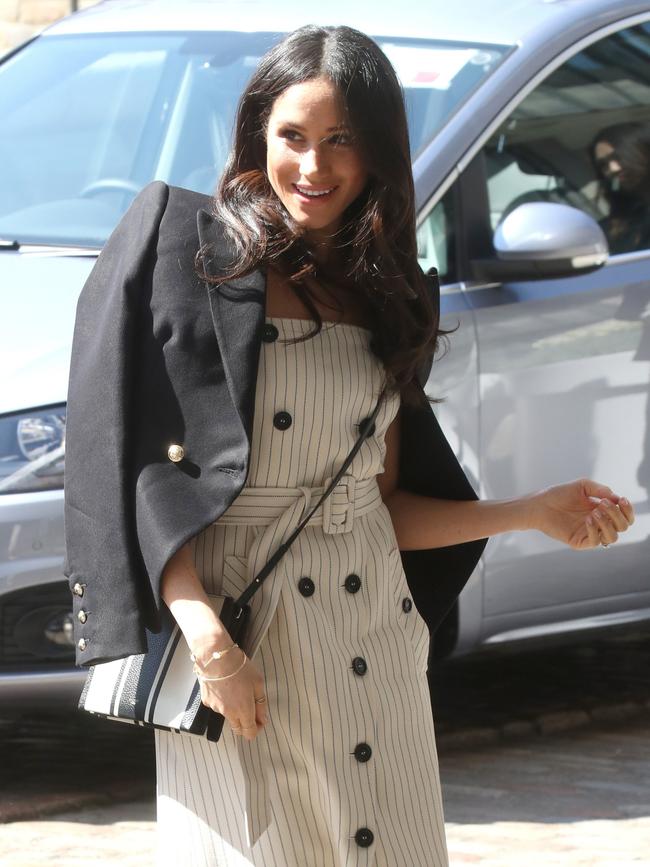
That said, when you dig down a bit, there is quite a bit to Meghan’s feminist CV. For one, she is happy to use the F-word. “I am proud to be a woman and a feminist,” she said during a speech for the UN on International Women’s Day in 2015. It was refreshing to hear. Plenty of women won’t go near the label (what are they instead, it may be worth asking).
Buckingham Palace seemed to like it, or maybe see the value in it. When Markle got married in May 2018, the royal family updated its website to include that line.
In 2016, Markle became a global ambassador for World Vision. She visited India, and chose — of all the causes to champion — the stigma surrounding menstruation in much of the developing world. Markle wrote a feature for Time magazine, explaining how “girls feel embarrassed to go to school during their periods, ill equipped with rags instead of pads. They are unable to participate in sports, and without bathrooms available to care for themselves, they often opt to drop out of school entirely.” They are then on the back foot forever.
Go back a little further and you’ll find examples of Markle standing up to sexist bullshit, even when it may have hurt her career. She was the break-out star of TV show Suits. Her character, Rachel, was smart. Then she looked at the scripts for the season and “every script seemed to begin with ‘Rachel enters wearing a towel’,” she said. “And I said: ‘Nope — not doing it anymore.’ ”
Her activism attracted the attention of feminist academics Laura Clancy, lecturer in media and cultural studies at Lancaster University, and Hannah Yelin, senior lecturer in media and culture at Oxford Brookes University. Their study — Meghan’s Manifesto: Meghan Markle and the Co-option of Feminism — appeared in the journal Celebrity Studies in 2018. They wondered how much success Markle would have going forward. “We are not interested in criticising women, or policing their feminism,” Yelin said at the time, but could Markle really “turn around the colonial, patriarchal, historic institution she’s married into”? They noted she had already shut down her personal Instagram account, where so many of her presentations about feminism had been posted.
Yelin was careful to say that the study was about “the institution that she’s married into, and the effect that has on her message”. Condensed for general consumption, it soon became: “Meghan has dropped feminism like a hot potato!”
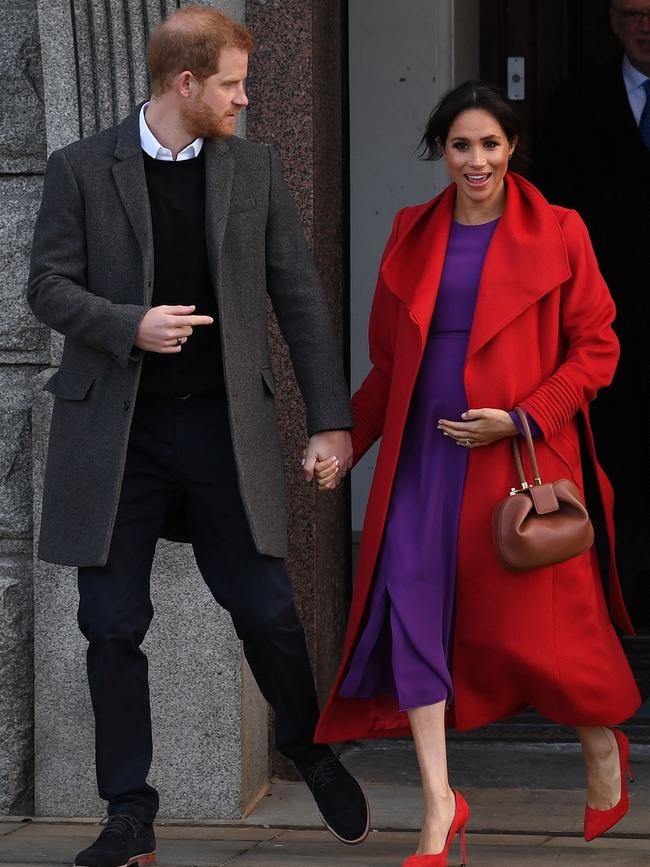

Clancy, in an interview with Grazia Daily in the UK, said the researchers had never meant that. They did say that Markle’s voice had been “appropriated” by the monarchy but, as Yelin puts it: “To imagine she was the feminist second coming to delight feminists around the world … that’s quite a brief.”
Markle has since used her platform — and that’s all she has, since it’s a full-time job, being a royal — to support such feminist causes as the #MeToo movement.
In Cape Town in October she made a pilgrimage to the post office where a 19-year-old woman, Uyinene Mrwetyana, was murdered, sparking Eurydice Dixon-style vigils across South Africa. “Gender-based violence is a harrowing reality for many women around the world,” Markle said in her speech. “And for some, like the beautiful and talented Uyinene, this violence has taken women from us who have — who had — a life full of hope and dreams ahead of them.”
Markle also met female entrepreneurs and businesswomen, female anti-apartheid campaigners from the 1970s, and mothers with HIV working hard in their communities to stop the spread of the virus and treat those who are suffering. “They all showed me a power and a solidarity that all people can take strength and inspiration from,” she said. “Because these amazing African women have discovered self-belief and found their worth.”
Yet violence against women in South Africa is endemic. The campaign there is, chillingly, called #AmINext?
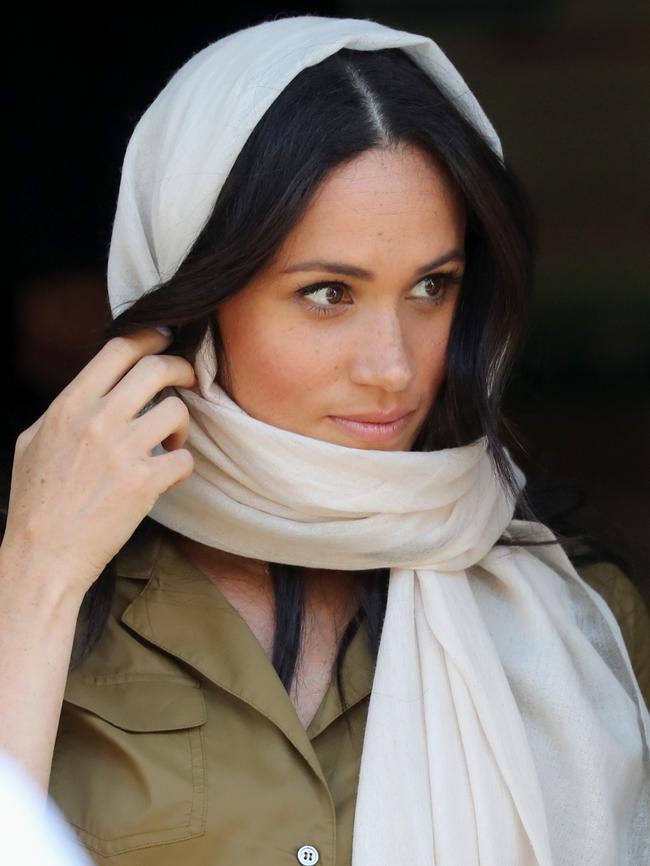
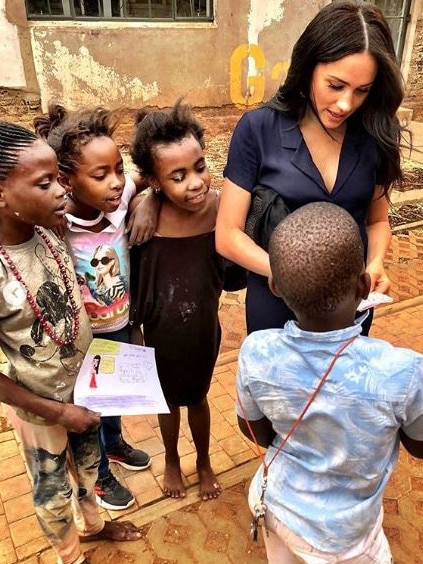
Speaking of hashtags, #WeLoveYouMeghan began trending on Twitter for a reason this past October. Markle and Harry had allowed a film crew to accompany them to Africa, and it seems she was captured just as the strain of becoming “the modern royal” became overwhelming.
Asked how she was coping with her new life, and the vilification she sometimes receives, she became emotional. “Any woman, especially when they’re pregnant, you’re really vulnerable, and so that was made really challenging,” she said. “And then when you have a newborn, you know. And especially as a woman, it’s a lot. So you add this on top of just trying to be a new mum or trying to be a newlywed … I guess, also thank you for asking, because not many people have asked if I’m okay, but it’s a very real thing to be going through behind the scenes.” Asked if she was “not really okay?”, she quietly replied: “Yes.”
In fact, she said, she and Harry had been “existing, not living” in recent months. The strain would appear to be emanating not from the palace so much as the press. But Harry has her back. “I will not,” he said, “be bullied into a game that killed my mum.”
It is fair to say that Diana had a special place in the hearts of Australians, in part for bringing the baby William on tour with her so soon after his birth. Markle perhaps has a special place too, for coming here so soon after she got married, and — bonus — announcing her pregnancy in Sydney.
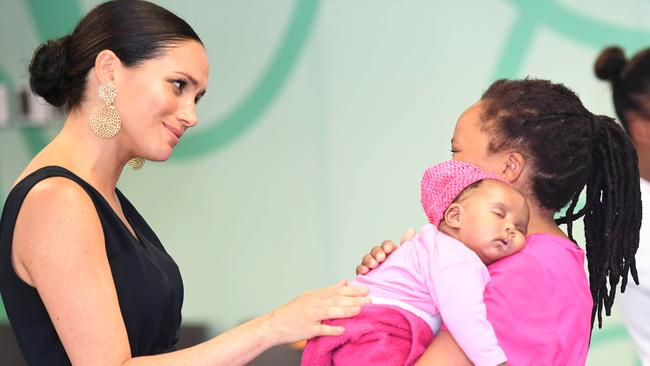
She has been greeted warmly elsewhere in the antipodes, too. Last October, in New Zealand, on the 125th anniversary of the campaign for the vote, she spoke about suffrage. “New Zealand women were the first in the world to achieve the vote,” she said in a speech in Wellington. “Women’s suffrage is about feminism, but feminism is about fairness.”
On the UN’s International Day of the Girl this year, she spoke about the “lack of access to education, forced child marriage, legal or medical inequality and gender-based violence”.
Yelin says Markle’s battle to modernise the institution into which she has married will be uphill. “As an individual, fantastic, keep going, you’ve got feminist goals and that’s wonderful,” she told Grazia. “But they are making all use of her … they get to show themselves modernising … (she is) a beneficial PR tool.”
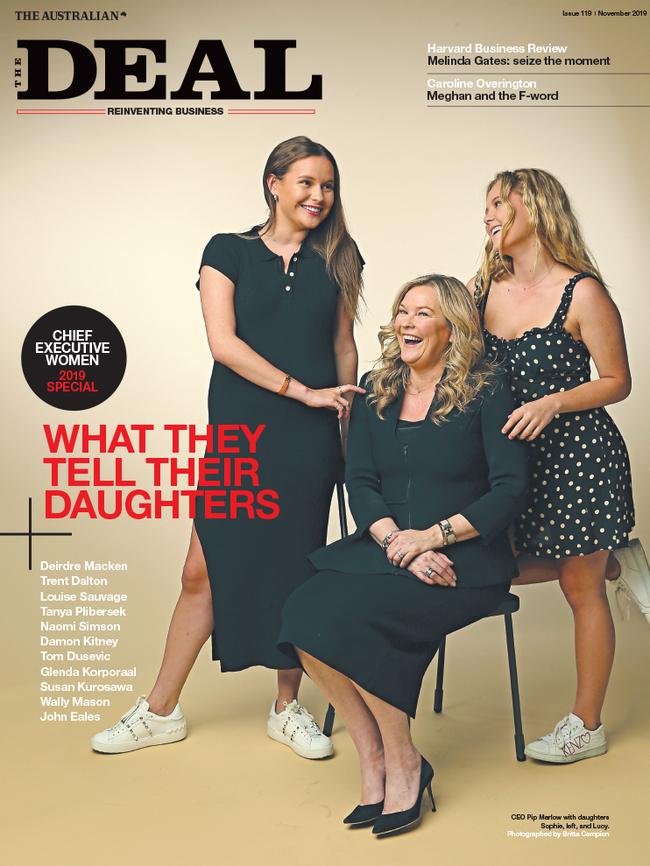
Is the palace using her? For sure. Of course. Obviously. You could see that at the wedding: the African American preacher; Meghan walking part way up the aisle alone, supported chiefly in the stalls by the single mum who raised her.
Does that matter?
Well, no. Because we all live in the patriarchy: men, boys, women, girls, even duchesses. We all therefore have to change the system from within. Markle started talking about feminism when she was 11 and, for all the constraints of her new position, she hasn’t stopped. That has to be a good thing.
Because if we, as adult women, have learnt anything from those who came before us, it’s that you have to say it, and say it, and say it, and keep on saying it until things get better for girls.
The Deal out this Friday.


To join the conversation, please log in. Don't have an account? Register
Join the conversation, you are commenting as Logout